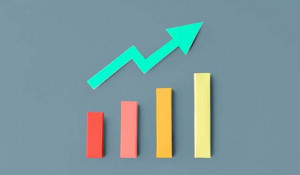Loan options to help you achieve your goals

While loans are pretty simple to understand, people often take out the wrong type of credit and end up suffering because of it.
We take a closer look at the different types of credit options available to New Zealanders in an attempt to help you figure which is the right credit option for your individual needs.
Need to make a large purchase but can’t afford it outright this month? Make use of a credit card with a 0% introductory offer.
Need to buy a car? A personal loan is not designed for such a large purchase and will probably end up costing you more than a regular car loan.
What are New Zealander’s spending their loans on?
Whether it’s a payday loan or a large $50,000 loan from one of the country’s leading banks, New Zealanders certainly make use of the credit options available to them. Last year alone we took out more than 440,000 loans, a figure which increased in 2019 by 20,000 to a whopping 460,000 loans. But what are we spending our loans on?
What are we taking out payday loans for?
Payday loans are still a very popular option and can easily cause a borrower to become dependent on them to get through the month. Surprisingly it’s not only low income individuals that make use of payday loans.
There are thousands of high income earners who, as a result of cash flow irregularities and poor budgeting, make use of payday loans to get through. Payday loans are generally used to cover emergency expenses such as car repairs or to simply buy groceries or pay for fuel or transport.
When it’s a good idea to use your credit card
Credit cards carry high interest rates and significant annual fees. Credit cards that come with 0% interest introductory periods need to be paid in full in order of this 0% interest period to remain active.
If you will be unable to repay your credit card balance in full by the repayment date, your balance will be subject to significant interest. In such cases when carrying credit card balances from one month to the next, and with high interest rates, using your credit card is a bad idea.
When you should make use of your credit card:
- When you will be able to repay your balance in full by the end of the month.
- When purchasing flight tickets or other items that will earn you significant rewards, while still paying off the balance by month end.
- When travelling and making purchases overseas, credit cards offer the best rates.
- If you require extended warranty on any purchase.
- When transferring credit card balances from other cards onto a balance transfer card.
- When looking to purchase something between $2,000 and $7,000.
- When looking to build your credit score and taking on debt that is relatively small and easy to manage.
Short term loans for smaller, urgent expenses that you can’t repay in 30 days or less
Short-term loans, like credit cards carry high interest rates since the interest will only be charged for s shorter period of time. They can be obtained from banks, peer-to-peer lenders, credit unions and from a range of alternative and online credit providers.
This is the ideal loan option for those who need to cover emergency expenses or make a significant purchase but cannot afford to repay it within 30 days or less.
Personal loans for larger expenses & tight budgets
Personal loans offer longer repayment terms, usually up to 7 years and offer loan amounts from $2,000 to $70,000. There are some banks that offer higher loan amounts, up to $200,000 but these almost always require security.
It is therefore always best to skip the credit cards and short-term loans if you need a bigger loan amount or have a tight budget and need lower repayments which you can get by extending the loan term.
When it comes to personal loans you may be conflicted about whether to use a traditional lender versus a peer-to-peer lender. Usually peer-to-peer loans will carry much more competitive interest rates and will have both secured and unsecured loan options but their loan amount are generally capped at $70,000.
Summary of benefits offered by personal loans:
- Personal loans offer larger loan amounts.
- Interest rates are lower than short-term loans and credit cards.
- You can benefit from longer loan terms.
- Enjoy lower monthly repayments if you have a tight budget.
Opting for a personal loan for bad credit
Bad credit loans will always cost more than other forms of credit because lenders are taking much more risk by lending to you. Bad credit loans may seem like a saving grace when you’ve been declined for finance elsewhere but, they may just end up landing you in even more financial trouble.
Bad credit loans should only be considered by those who have no affordability issues but have, for other reasons such as poor debt management or a lack of credit history, need a more flexible lending criteria. Never take out a personal loan for bad credit to repay existing loans.
Using an overdraft
Overdrafts cost money and can be very expensive. Not only is there a set up fee but whether you use your overdraft or not, you will have to pay a monthly fee. This in addition to an interest on the negative balance!
That being said, if you have the habit of not having enough money when certain debit order run, an overdraft can be cheaper than paying those dishonor fees.
When an overdraft makes sense:
- When you have an irregular cash flow.
- When you tend to dishonor debit orders due to insufficient income.
- When you have poor money management skills.
Generally speaking, there are very few situations, except the ones mentioned above, in which an arranged overdraft makes sense. Also note that if you do not pay attention to your account balance, you may dip into an unarranged overdraft, which as many New Zealanders have experience, will be a very costly affair.



